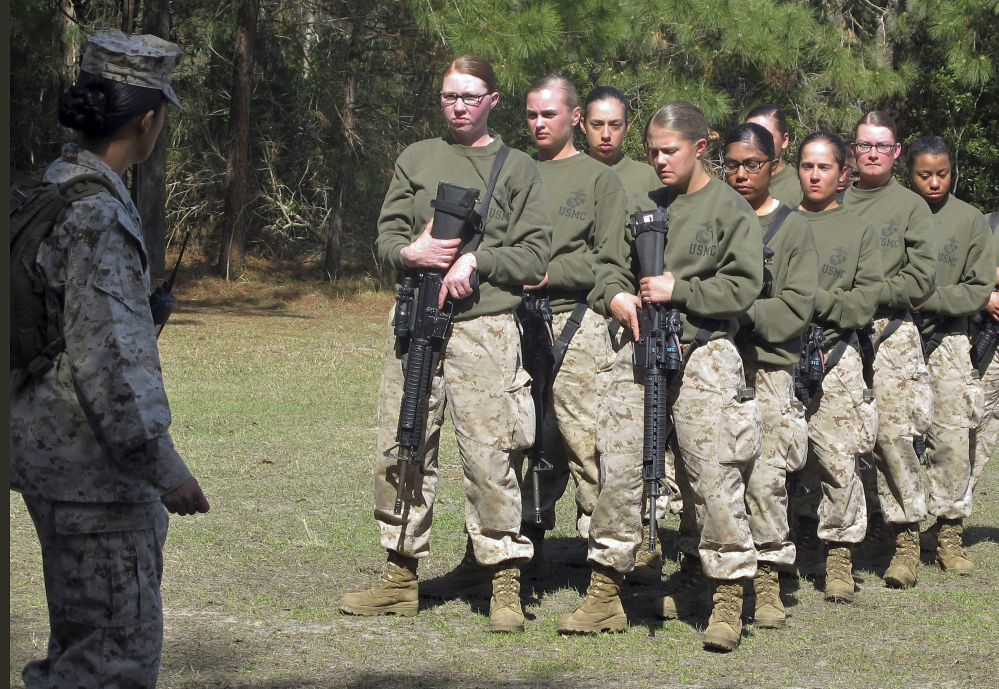WASHINGTON — Six months after the Pentagon ordered all combat jobs open to women, seven female Marines are either serving in those posts or waiting to serve, and 167 are performing noncombat duties in front-line units, according to data obtained by The Associated Press.
The numbers underscore the difficulty of integrating women into the demanding jobs, and reflect the small number of women who want to be combat Marines and can pass the new tough physical standards required to qualify. So far this year those standards have weeded out most female hopefuls and have also disqualified some men.
Six out of seven female recruits – and 40 out of about 1,500 male recruits – failed to pass the new regimen of pull-ups, ammunition-can lifts, a 3-mile run and combat maneuvers required to move on in training for combat jobs, according to the data.
Failing the tests, taken about 45 days into basic training, forces recruits into less physically demanding Marine jobs.
The high failure rate for women recruits, however, raises questions about how well integration can work, including in Marine infantry units where troops routinely slog for miles carrying packs weighed down with artillery shells and ammunition, and at any moment must be able to scale walls and fight.
The new standards reflect the Pentagon’s decision to allow women to compete for front-line jobs, including infantry, artillery and other combat posts. But Marine leaders say they are also screening out less physically powerful Marines – both men and women.
“I think that’s made everybody better,” Marine Commandant Gen. Robert Neller told the AP in his first in-depth interview on the subject. “We’re trying to raise everybody’s bar a little bit . …”
The seven women already serving in combat jobs or in the pipeline are almost all Marine officers who requested open combat posts.
The 167 other female Marines are working in intelligence, logistics or communications, but asked to be moved to front-line combat units.
Neller said he wasn’t surprised that few women are interested in the combat jobs.
“Some of them are not interested at all, some want just to make it gender neutral …,” Neller said. “The majority of them, when you get them together, they say, ‘Look, I’m not really interested in this. I love being a Marine, I like what I’m doing as a Marine. And I’m really not interested in this, but I don’t want you to tell me I can’t try.”‘
Copy the Story LinkSend questions/comments to the editors.



Success. Please wait for the page to reload. If the page does not reload within 5 seconds, please refresh the page.
Enter your email and password to access comments.
Hi, to comment on stories you must . This profile is in addition to your subscription and website login.
Already have a commenting profile? .
Invalid username/password.
Please check your email to confirm and complete your registration.
Only subscribers are eligible to post comments. Please subscribe or login first for digital access. Here’s why.
Use the form below to reset your password. When you've submitted your account email, we will send an email with a reset code.